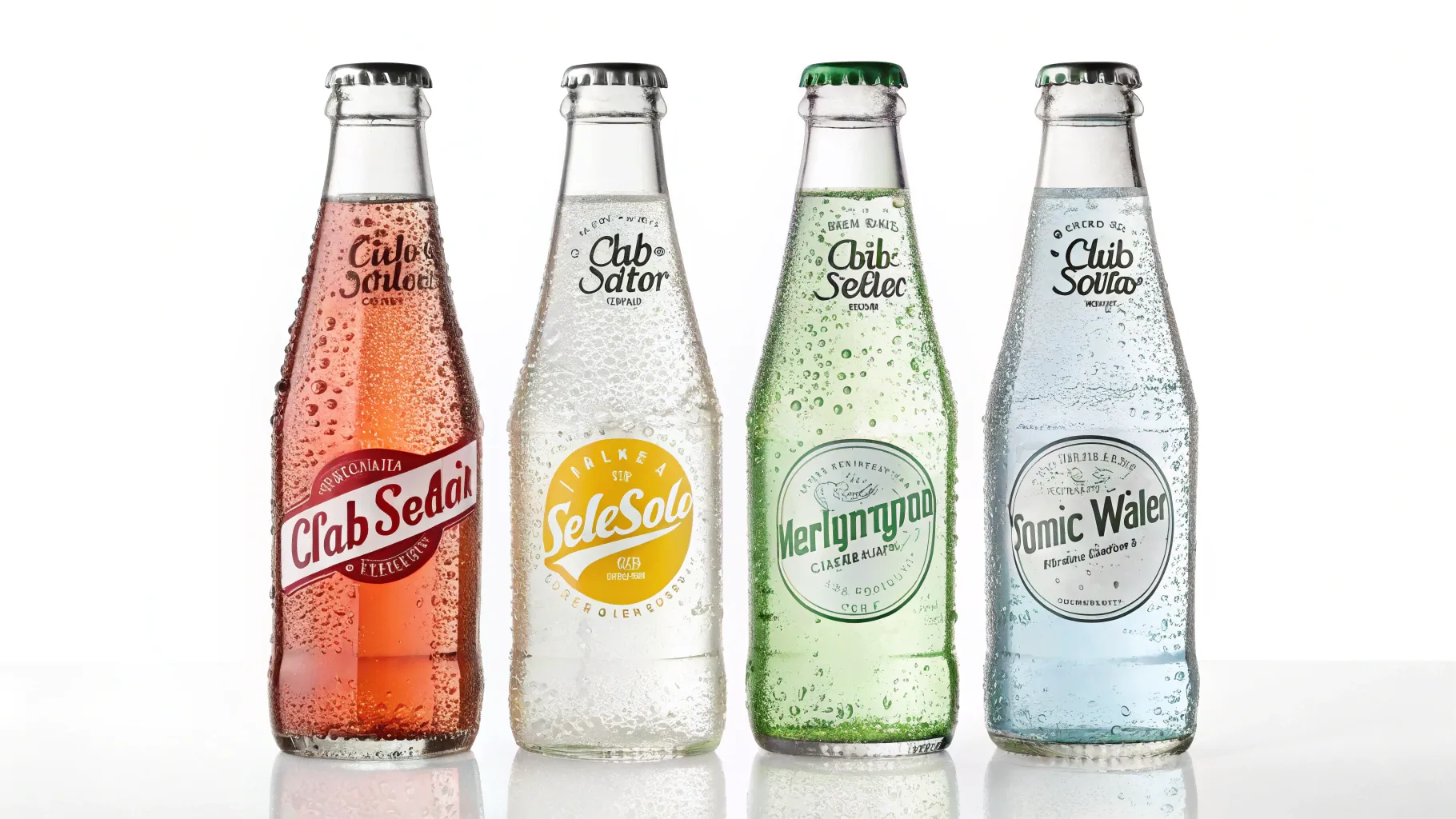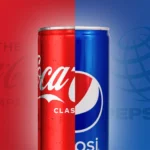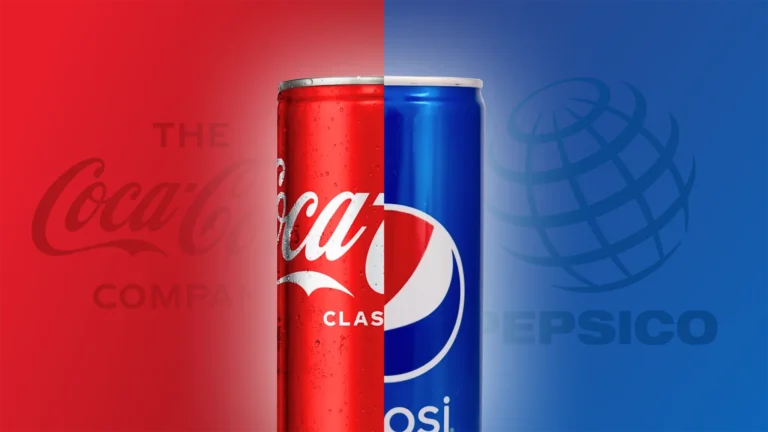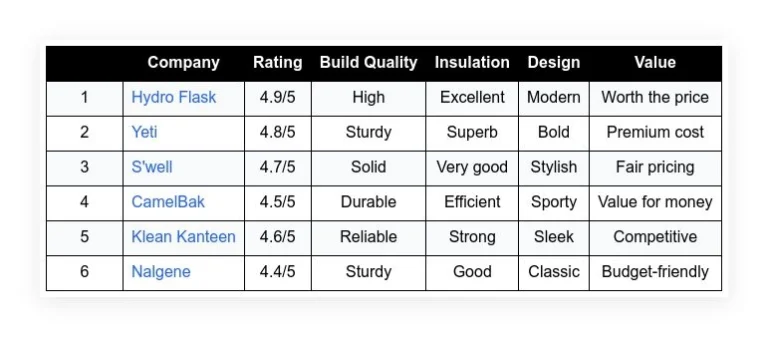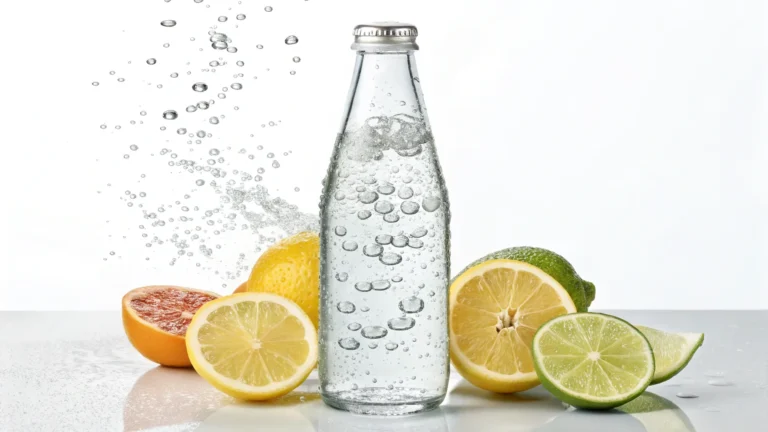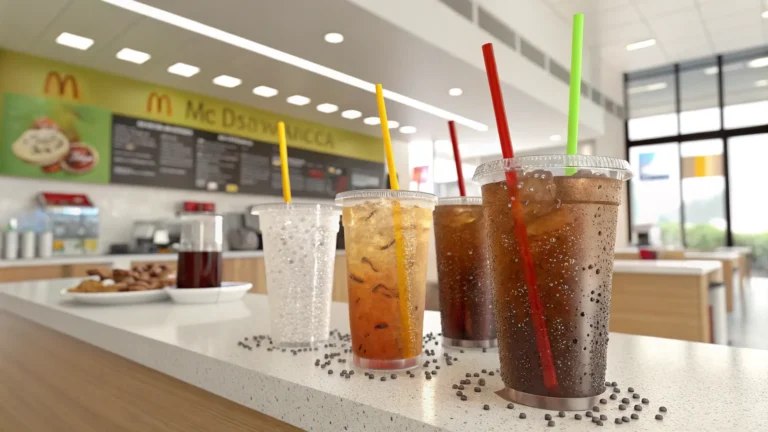I recently explored different types of carbonated water. My goal was to understand the differences and similarities among club soda, seltzer, sparkling mineral water, and tonic water. This investigation helped me compare ingredients, taste, and nutritional values while considering a healthier lifestyle.
The Basics of Carbonated Water
Carbonated water is simply water that has been infused with carbon dioxide gas. This process gives the drink its characteristic bubbles and fizzy texture. Many people choose these beverages as a substitute for regular soda. They provide a refreshing experience while keeping the calorie count low, with one major exception.
Club Soda and Seltzer: A Closer Look
Club soda starts with plain water that is carbonated by adding carbon dioxide gas. After this, various minerals are introduced into the water. Common minerals include potassium sulfate, sodium chloride, disodium phosphate, and sodium bicarbonate. These minerals can add a slight salty taste which many people enjoy.
Seltzer is very similar. It is water that has been carbonated in the same way, but it generally does not have added minerals. This gives seltzer a plain taste that works well in many mixed drinks. Seltzer has its origins in Germany and later became popular in the United States.
Sparkling Mineral Water: Naturally Bubbly
Sparkling mineral water comes from natural springs or wells. In these sources, water is naturally infused with carbon dioxide. The natural process brings along minerals like sodium, magnesium, and calcium. The specific taste depends on the minerals present in the water. Some brands even add extra carbon dioxide to enhance the fizz.
The flavor of sparkling mineral water can differ significantly from one brand to the next. This is because the mineral levels vary from one source to another. The unique combination not only adds fizz but also alters the taste in noticeable ways.
Tonic Water: Distinct With A Twist
Tonic water is different from the other types. It is a carbonated drink that also includes added minerals. What makes tonic water truly unique is the addition of quinine. Quinine is a substance extracted from the bark of cinchona trees. This ingredient gives tonic water a bitter flavor.
Historically, tonic water was used in tropical regions to help prevent malaria. In those days, it had a much higher concentration of quinine. Today, the amount is reduced to create a subtle bitter taste that is usually balanced with sweeteners. Common sweeteners include high fructose corn syrup or sugar. As a result, tonic water contains calories that come from sugar. This makes it less appealing if you are looking for a low-calorie option.
Nutritional Comparison
The nutritional content varies slightly among these beverages. Club soda, seltzer, and sparkling mineral water have little to no calories, proteins, fats, or sugars. Tonic water stands apart with its higher calorie content due to added sugar. Here is a quick comparison for a 12-ounce serving:
- Club Soda: 0 calories, minimal sodium and a hint of minerals.
- Seltzer: 0 calories, no added minerals for flavor.
- Sparkling Mineral Water: 0 calories, with varying levels of natural minerals.
- Tonic Water: Around 120 calories, with added sugar that contributes 31 grams of carbs.
It is clear that only tonic water is a source of calories due to its sweetening agents. The other beverages provide a refreshing option without extra calories.
Flavor Profiles and Taste Differences
Each type of carbonated water offers its own taste experience. Club soda can have a slightly salty taste because of the minerals added to it. Seltzer tends to offer a more neutral flavor. This makes it ideal for those who do not want any extra taste in their drinks.
Sparkling mineral water provides a natural taste that reflects its source. Depending on the natural mineral composition, the flavor can range from subtly sweet to slightly bitter. Tonic water, on the other hand, is known for its distinctive bitter taste. This bitterness is balanced by sweetness, making it a popular choice to mix with gin or vodka.
Health Considerations and Lifestyle Choices
When choosing a carbonated beverage, many people focus on health benefits. Club soda, seltzer, and sparkling mineral water have similar nutritional profiles. They are calorie-free and help you stay hydrated while offering a pleasant fizz. For individuals striving for a healthier lifestyle, these drinks make appealing alternatives to sweetened sodas.
Tonic water requires a different approach. While it provides the same fizzy experience, the addition of sugar means that it contributes extra calories that could lead to weight gain. Excessive consumption of sugary beverages is linked to obesity and type 2 diabetes. It is wise to limit the intake of tonic water if you are mindful of your sugar consumption.
Choosing the Beverage That Suits Your Taste
The final decision when choosing a carbonated water beverage comes down to personal preference. If you enjoy a slightly salty profile, club soda might be your best choice. For those who prefer a clean, neutral taste, seltzer is a great option. People who appreciate a naturally flavored drink with a hint of minerals will likely opt for sparkling mineral water.
If you enjoy a more complex, bitter-sweet taste, tonic water can deliver that experience. However, be aware of the extra calories that come with it. For a health-conscious person, it is better to enjoy tonic water in moderation.
When I compared these drinks, I noticed that the differences extend beyond taste. The methods used to create the fizz and the type of minerals added play a role in shaping the flavor experience. What truly matters is finding the drink that fits your lifestyle and taste preferences.
Key Differences at A Glance
To summarize the key points:
- Club Soda: Carbonated water with added mineral salts for a slightly salty flavor.
- Seltzer: Plain carbonated water without extra minerals, offering a clean taste.
- Sparkling Mineral Water: Naturally carbonated water with a mineral content that varies by source.
- Tonic Water: Carbonated water enriched with quinine and sweeteners, resulting in a bitter-sweet drink loaded with extra calories.
Personal Reflections On Carbonated Waters
The process of investigating these beverages was both informative and enjoyable. I learned that the production methods largely influence the taste and nutritional value. This knowledge has helped me make smarter choices when I want a fizzy alternative. I tend to choose seltzer or sparkling mineral water if I want a refreshing drink without added calories. Club soda, with its touch of minerals, also has its charm during certain occasions.
At times when I enjoy a cocktail, tonic water becomes the preferred mixer. Its bitter profile complements spirits like gin. However, I always keep its calorie count in mind. For those who want hydration without extra sugars, tonic water is probably not the best choice.
The Bigger Picture On Beverage Choices
My exploration into carbonated waters has taught me that beverages can be more than just drinks. They are a part of our daily routine that affect our health and enjoyment. Whether you are looking for a healthy substitute for soda or a mixer for your cocktail, understanding the nuances can help you decide better.
The subtle differences in taste and texture remind me that even simple choices can have interesting stories behind them. I encourage others to try different varieties. Understanding what each type offers can lead to a more fulfilling drinking experience.
Ultimately, your choice comes down to what you enjoy drinking. If you want hydration coupled with a little flavor, consider club soda, seltzer, or sparkling mineral water. On the other hand, if you are mixing drinks and a bitter-sweet profile is desired, tonic water is ideal. Moderation is key with tonic water, especially if you are managing your calorie intake.
Frequently Asked Questions
Q: What is the main difference between club soda and seltzer?
Club soda has added minerals that give it a salty note, while seltzer is simply carbonated water with no additional flavorings.
Q: Can I use these beverages as substitutes for regular water?
Yes, club soda, seltzer, and sparkling mineral water are all good options for hydration. They are calorie-free and refreshingly fizzy.
Q: Why does tonic water contain calories?
Tonic water is sweetened with sugar or high fructose corn syrup, which adds calories. Its unique bitter taste comes from the addition of quinine.

